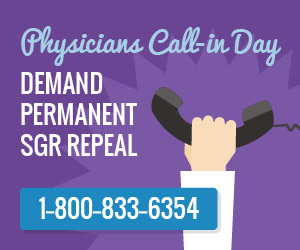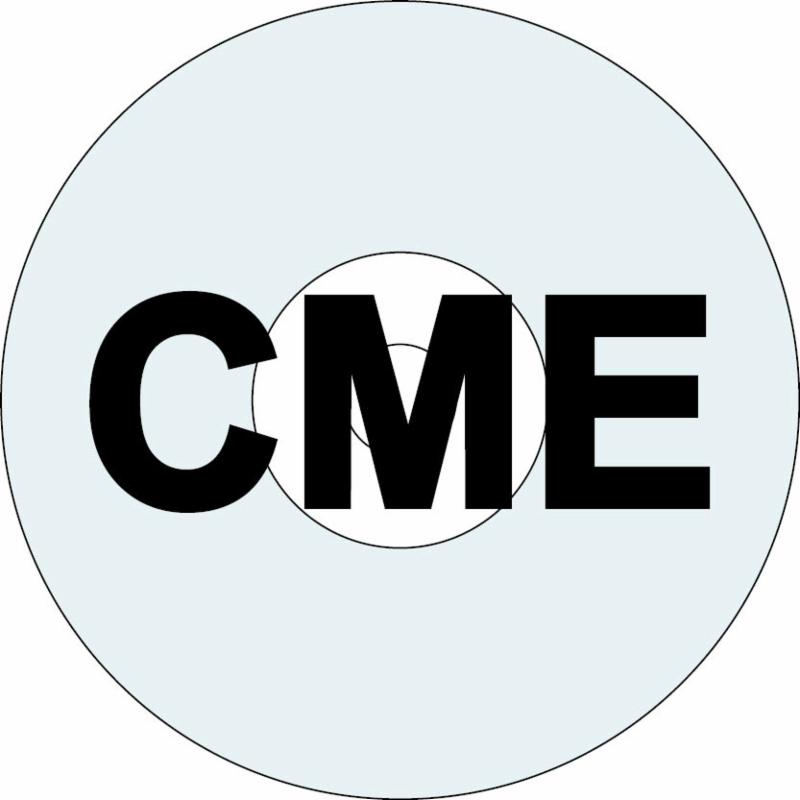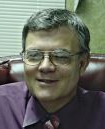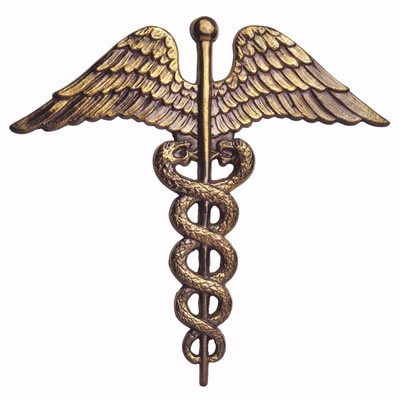|
Featured Products
Comes with a syllabus
and CD or DVD
$99 (was $189)
Comes with a syllabus
and CD or DVD
$189 (was $219)
|
|
Contact Us
| |
Bariatric Physicians
2821 S. Parker Road
Ste. 625
Aurora, CO 80014
303.770.2526 | asbp.org
Staff
Laurie Traetow, CAE, CPA
Executive Director
laurie@asbp.org
Beth Amelon
Sponsorships & Exhibits Coordinator
beth@asbp.org
Carly Crosby
Meeting Planner & Executive Coordinator
carly@asbp.org
Marcie Gonzales
Receptionist
marcie@asbp.org
|
|
|
|
Obesity Medicine e-Weekly
|
News
 Call TODAY to urge Congress to repeal the SGR formula Call TODAY to urge Congress to repeal the SGR formula
This week, lawmakers introduced bills to eliminate the flawed Medicare sustainable growth rate (SGR) formula. Now, it's your turn to call, email, tweet, post, and notify your U.S. representatives about the importance of passing these bills. Legislators must vote on the proposed bills before the March 31 expiration date of the current patch or physicians will face a 21 percent Medicare payment cut. Call your U.S. representatives TODAY at 800.833.6354 and urge them to repeal the SGR formula. Learn more about the SGR repeal.
 Pre-order your Obesity Medicine 2015 conference recordings Whether you're attending the spring conference in Denver or not, the conference recordings are a great way to earn continuing medical education (CME) hours from the comfort of your own home. You may now pre-order your copies of the Obesity Medicine 2015 conference recordings, which will be shipped in early June.
|
Featured Member
Get to know your fellow ASBP members! Each month, we'll feature an interview with an ASBP member to help you learn more about your obesity medicine colleagues. This month's featured member is Dr. William McCarthy, the ASBP CME Program Director and chairperson of the CME Content Planning and Review Committees.
 Q&A with William McCarthy, MD Q&A with William McCarthy, MD
1. How long have you been working in obesity medicine, and how did you get started in obesity medicine? My introduction to obesity medicine was in 2005 at the ASBP meeting in Las Vegas. At the time I was ready to give up medicine after thirty years of family practice. I hated the role of being a "pill pusher," prescribing polypharmacy to patients with medical conditions that were obviously due to lifestyle. At that ASBP meeting, I discovered that I could make a difference in my patients' lives without a prescription pad. Within a year I passed my boards, and made the transition from full-time family medicine to full-time obesity medicine.
2. What are some of the jobs and details that go into planning and organizing ASBP's CME events? The CME committee is responsible for planning the biannual conferences, including the Obesity Medicine Certification Review Course, Nutrition and Metabolism Symposium, Obesity Medicine Essentials Course, and Obesity Summit as well as the Obesity Basic Medical Treatment Courses and the Advanced Curriculum Fellowship Program. As an ACCME accredited program, we are obligated to follow a rigid set of guidelines for program development, content, and speaker requirements. The planning process is focused on ensuring ASBP is meeting our learners' needs. The committee assures that all content displays no conflict of interest and is scientifically sound. Each step and detail of this planning process, which includes follow up after the events to measure concrete outcomes, is well documented and the committee uses this information to develop and improve future programming. Right now our committee is in the process of planning the fall event in Washington, D.C., and next spring's meeting in San Francisco.
3. What advice would you offer to clinicians who are new to the field of obesity medicine? Be open-minded and willing to question or even discard preconceived notions about obesity treatment and patients affected by obesity. Learn as much as you can, and never stop learning!
4. What excites you the most about the field of obesity medicine right now? Obesity medicine has given me a satisfaction with my profession that I never felt as a family physician. Everything I learned in medical school and residency has all come together: if you know obesity medicine, you know medicine. The future of our specialty really excites me.
5. What are your favorite ways to spend your time off? I lead a quiet life with my wife, my former college sweetheart, having fun doing little things. My wife and I are rabid Xavier Musketeer basketball fans. I'll admit I'm an obesity medicine junkie, and spend many hours searching Pub Med and reading obesity medicine literature, fad diet books, and blogs.
6. If someone were to write a biography about you in a few years, what do you think the title should be and why? "There Are No Accidents." I've often felt that my life has been a series of serendipitous decisions and happenings. My college was chosen because it was at the end of the alphabet ("X" for Xavier)--it was there I met my wife. I chose pre-med because every other major sounded boring, and I chose family practice because Marcus Welby was cool. Attending the ASBP meeting in Las Vegas was an absolute whim, yet I discovered why I became a physician. I could go on and on, but if you want to hear the rest, you'll have to ask me.
|
Foundation
Tips for writing your letter of intent
The Obesity Treatment Foundation (OTF) is now accepting letters of intent from candidates seeking a grant to fund research about obesity treatment. If you're planning to submit a letter of intent, see some letter-of-intent-writing tips. Letters of intent are due by April 20. Learn more about the grant submission process, or submit your questions to research@asbp.org.
 Become a research mentor Become a research mentor
Do you have experience collecting and analyzing patient data? Have you presented a poster at an ASBP conference? Has your research been published in a peer-reviewed journal? If so, OTF wants YOU to become a research mentor for new researchers in the field of obesity medicine. Contact research@asbp.org to indicate your interest in being a research mentor and serving as a resource for those who have questions about conducting research.
|
Resources
 The Obesity Treatment Foundation (OTF) helps keep you up to date on current obesity research! Each week, OTF publishes a brief overview of three recent studies so you can be in the know, even during your busiest days. Click the titles below to view the full articles, and please consider supporting OTF so we can continue to provide you with updates on the latest research. The Obesity Treatment Foundation (OTF) helps keep you up to date on current obesity research! Each week, OTF publishes a brief overview of three recent studies so you can be in the know, even during your busiest days. Click the titles below to view the full articles, and please consider supporting OTF so we can continue to provide you with updates on the latest research.
Karlsson, H. K., et al. Journal of Neuroscience, 2015.
The role of neurochemical pathways in overeating and obesity are not fully understood. Studies have shown increased u-opioid receptor (MOR) and decreased dopamine D2 receptor (D2R) availability in addictive disorders; however, the role of these systems in human obesity still remains unclear. Thirteen women with obesity (average body mass indexes of 42 kilograms per meters squared) and 14 non-obese age-matched women were studied using PET scans with selective radioligands to measure brain MOR and D2R availability. The study found that obesity was associated with a significantly lower number of opioid receptors in the brain. However, no differences were observed in the dopamine neurotransmitter system, which regulates motivational aspects of eating. It is possible that the lack of opioid receptors in the brain predisposes individuals with obesity to overeat to compensate for the decreased hedonic responses in this system. However, this study design was cross-sectional in nature, so whether the altered brain neurochemistry is a cause or consequence of obesity could not be determined.
Ledochowsk, L., et al. PLoS one, 2015.
Exercise has been shown to attenuate cravings for chocolate in lean individuals. A study was conducted to determine if an acute exercise bout also affects the drive to consume sugary snacks in individuals affected by overweight. Participants, who habitually consumed at least 100 grams of high-caloric sugary snacks, such as chocolate, per day, were required to abstain from chocolate for three days. Subjects completed a 15-minute brisk walk or passive control. Following each condition, participants completed two tasks: they did the Stroop color-word interference task and handled sugary snacks. The study found that the walk reduced urges for sugary snacks and decreased urges in response to the stressful situation. This finding supports the idea that taking a brisk walk before indulging may help control urges for sugary snacks.
Effect of intragastric injection of botulinum toxin A for the treatment of obesity: A meta-analysis and meta-regression
Bang, C. S., et al. Gastrointest Endosc, 2015.
Botulinum toxin A blocks the muscular contractions of smooth and striated muscles by inhibiting acetylcholine. Acetylcholine-mediated gastric antral contraction is a necessary step for food passage into the duodenum; therefore, intragastric botulinum toxin A injection in the antrum was examined for the treatment of obesity. In this meta-analysis, 115 patients (79 treated versus 36 placebo) were studied for the effects of an intragastric botulinum toxin A injection on weight loss. The analysis found that when compared to placebo injection, the intragastric botulinum toxin A injection showed a statistically significant decrease in body weight. In studies where diet was also modified, there was significant additional efficacy for the treatment of obesity when combined with the injection. This initial analysis suggests that intragastric injection of botulinum toxin A may be a useful way to promote weight loss in individuals affected by obesity.
|
Education

 Reserve your spot at the highly anticipated spring conference: Obesity Medicine 2015 Reserve your spot at the highly anticipated spring conference: Obesity Medicine 2015
-
Full Conference
30 CME | April 8-12 Includes the Spring Obesity Summit and your choice of either Obesity Medicine Essentials ( register) or the Nutrition and Metabolism Symposium ( register).
- Dr. Harold C. Seim Obesity Medicine Essentials
12.75 CME | April 8-9 | Register
Gain practical knowledge in this how-to series about the medical care of patients affected by obesity.
-
Nutrition and Metabolism Symposium12.75 CME | April 8-9 | RegisterBroaden your understanding about a range of diet and nutrition options based on scientific research.
- Spring Obesity Summit
17.25 CME | April 10-12 | Register
Enhance your knowledge about the latest scientific research and trends related to the evaluation and treatment of patients affected by obesity.
Want more? Save the date for Overcoming Obesity 2015: Diagnose. Personalize. Treat. in Washington, D.C., from Sept. 30-Oct. 4, 2015.
 Extend your trip with ski days in Breckenridge, Colo. Extend your trip with ski days in Breckenridge, Colo.
Come to Colorado early or leave late when you attend Obesity Medicine 2015! Enjoy time in the mountains at Breckenridge Ski Resort, one of the world's most popular ski resorts. Breckenridge is offering Obesity Medicine 2015 attendees discounted lodging and lift tickets. Learn more about skiing in Breckenridge.
  More Obesity Basic Medical Treatment courses scheduled this summer More Obesity Basic Medical Treatment courses scheduled this summer
Our winter season of Obesity Basic Medical Treatment courses is finished, but we're offering another series of courses this summer! Do you know anyone who wants to learn the basics of medical obesity treatment but doesn't know where to start? The Obesity Basic Medical Treatment (OBMT) course teaches physicians and health care providers who are brand new to the field of obesity medicine about the basic approaches to obesity treatment. Attendees can then decide whether or not to pursue further obesity medicine education or understand when to refer a patient to an obesity medicine clinician. Learn more about this course, or download a printable registration form. Online registration is also available for the following dates and cities.
|
|
|
|
|